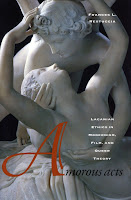Roderick on Freud's garrison metaphor from a Civilization and Its Discontents
"Freud compares the conscious mind, in the book I have – I am talking about now, he compares the conscious mind to a garrison. A captured, tiny garrison in an immense city. The city of Rome. With all its layers of history. All its archaic barbarisms. All its hidden avenues. Covered over by civilization after civilization. That’s our mind. That whole thing. But the conscious part of it is that one garrison that’s clear, that holds out in this captured city.
A magnificent metaphor for all the surrounding motives, motivations, motifs, desires, that drive us… that are not philosophical… that cannot, even if we talk to our therapist a long time, all be brought up at once."
Watch full lecture here:
Rick Roderick on The Masters of Suspicion
Marx, Freud, and Nietzsche (the figures named the "masters of suspicion" by the French Philosopher Paul Ricoeur)
This video is 1st in the 8-part series:
The Self Under Siege: Philosophy in the Twentieth Century (1993)
II. Heidegger - The Rejection of Humanism [full length]
III. Sartre - The Road to Freedom [full length]
IV. Marcuse - One-Dimensional Man [full length]
V. Habermas - The Fragile Dignity of Humanity [full length]
VI. Foucault - The Disappearance of the Human [full length]
VII. Derrida - The Ends of Man [full length]
VIII. Baudrillard - Fatal Strategies
 |
| Marx, Freud, and Nietzsche: The Masters of Suspicion |




